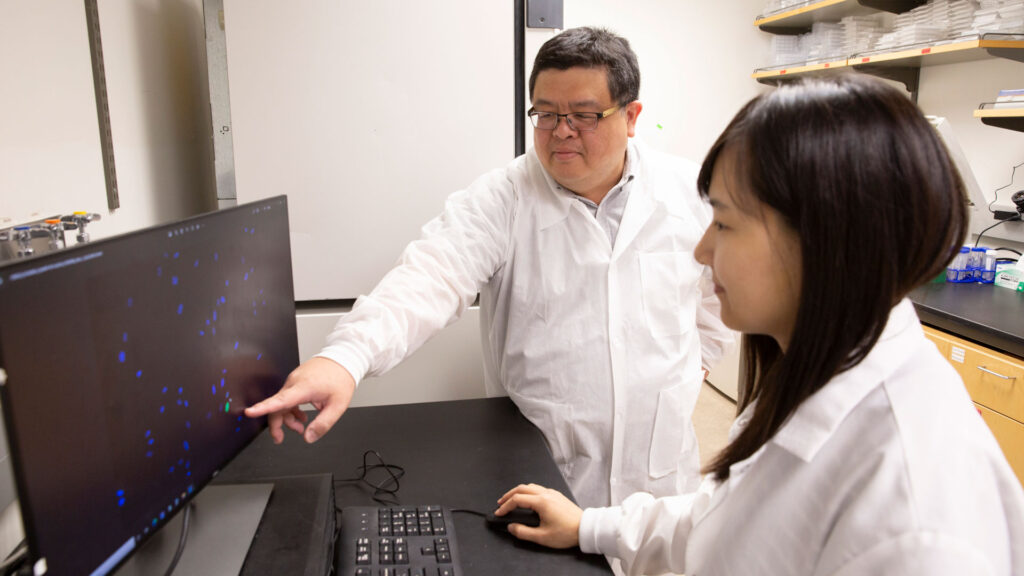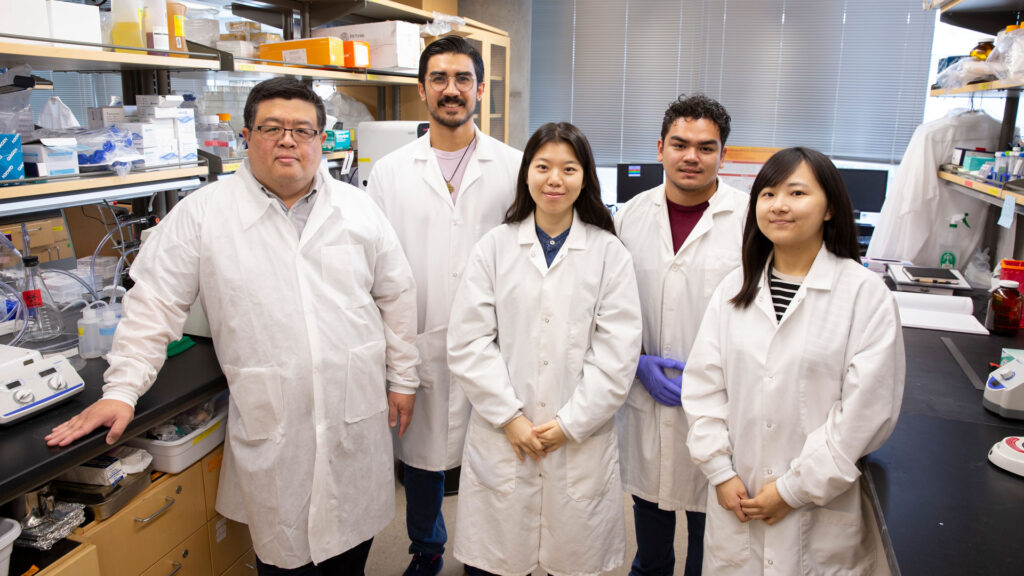Q&A with faculty mentor Mark Wang
Posted on: October 21, 2024
Posted on: October 21, 2024
Mark Wang is an assistant professor of biomedical engineering in the School of Biological and Health Systems Engineering. In his Nanotherapeutics & Molecular Engineering Laboratory, Wang uses molecular and cellular bioengineering techniques and biomaterials to develop nano-sized therapeutic and imaging agents that can enhance the diagnosis and treatment of cardiovascular disease. After spending the past four years as a faculty mentor in the FURI and MORE programs, he is eager to encourage more students to participate in these valuable research experiences.

What made you want to get involved as a FURI and MORE faculty mentor?
Mentorship has been a pivotal part of my own academic journey, and I am eager to take on that role for both undergraduate and graduate students, nurturing the next generation of scientists and engineers.
What is your favorite part about seeing your students conduct research?
My favorite part of mentorship is assisting students in identifying key questions, proposing solutions, and designing and executing experiments to address the challenges they encounter. It’s incredibly rewarding to guide them through this process and witness their growth as researchers.
How have your FURI and MORE students had an effect on your research?
Many students gained hands-on experience, developed critical thinking skills and made significant contributions to our studies, which have often led to new research projects beyond the scope of the FURI and MORE programs.
How has the experience been rewarding for you?
Beyond research, the most valuable aspect for me as a FURI and MORE mentor is learning to discover each student’s unique interests and abilities, and helping them navigate their path toward their career goals.
What advice would you give to students who might be interested in participating in FURI or MORE?
Developing a research proposal requires a solid foundation of background knowledge and familiarity with relevant skills. I would advise students interested in participating in the FURI and MORE programs to start the process early. Begin by identifying labs and research topics that align with your interests, and reach out to potential mentors at least one semester in advance.
Why should other faculty members become FURI and MORE mentors?
It provides faculty members with the opportunity to work closely with talented, motivated students and contribute to their academic and professional development. Additionally, it brings fresh energy and perspectives to the research team, which I really enjoy seeing.

I am exceptionally surprised at how much Dr. Wang has made an effort to ensure his students are able to keep pushing toward where they want to be. Most importantly, Dr. Wang understands the nature of cellular engineering and clearly displays expertise and professionalism that went above my personal expectations for this project.
Alexander EganBiomedical engineering FURI student